Alberta
Emissions cap threatens Indigenous communities with higher costs, fewer opportunities
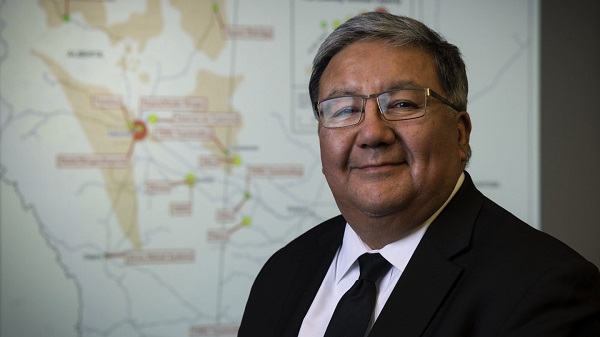
Dale Swampy, founder of the National Coalition of Chiefs. Photograph for Canadian Energy Centre
From the Canadian Energy Centre
National Coalition of Chiefs founder Dale Swampy says Canada needs a more sustainable strategy for reducing emissions
The head of the National Coalition of Chiefs (NCC) says Ottawa’s proposed oil and gas emissions cap couldn’t come at a worse time for Indigenous communities.
Dale Swampy says the cap threatens the combined prospect of higher costs for fuel and groceries, along with fewer economic opportunities like jobs and revenues from involvement in energy projects.
“Any small fluctuation in the economy is affected on our communities tenfold because we rely so much on basic necessities. And those are going to be the products that increase in price significantly because of this,” says Swampy, who founded the NCC in 2016 to fight poverty through partnerships with the natural resource sector.
He says that of particular concern is the price of fuel, which will skyrocket under the emissions cap because it will force reduced Canadian oil and gas production.
Analysis by S&P Global found that meeting the cap’s requirements would require a production cut of over one million barrels of oil equivalent per day (boe/d) in 2030, and 2.1 million boe/d in 2035.
“Production gets reduced, and the cost of fuel goes up,” Swampy says.
“Our concern is that everything that has to do with both fuel for transportation and fuel to heat our homes is amplified on First Nation communities because we live in rural Canada. We live in isolated communities, and it costs much more for us to operate our daily lives because we have to travel much further than anybody in a metropolitan area. So, it’s going to impact us greatly.”
Indigenous communities are already stretched financially, he says.
“What you could buy in 2019 terms of meat and produce is almost double now, and even though the inflation rate is trending downwards, we still haven’t gotten over the impact of what it costs for a bag of groceries these days,” Swampy says.
“In our communities, more than half are under the age of 21, so there’s a lot of bigger families out there struggling to just get food on the table.”
The frustrating timing of the cap is that it comes amid a rising tide of Indigenous involvement in Canadian oil and gas. Since 2022, more than 75 Indigenous communities in Alberta and B.C. have agreed to become part owners of energy projects.
Three major projects – the Trans Mountain Pipeline Expansion, Coastal GasLink Pipeline and LNG Canada export terminal – together have spent more than $11 billion with Indigenous and local businesses.
“We’re at a turning point right now. There’s a real drive towards getting us involved in equity opportunities, employment opportunities, and contracting opportunities,” Swampy says.
“Everybody who didn’t talk to us in the past is coming to our front door and saying, ‘Do you want to work with us?’ It couldn’t come at a worse time when we have this opportunity. The emissions cap is going to reduce the amount of activity, and it’s going to reduce the amount of investment,” he says.
“We’re part of that industry now. We’re entrenched in it now, and we have to support it in order to support our people that work in this industry.”
Economic growth, and more time, is needed to fund development of low emissions energy sources without ruining the economy, he says.
“I think we need more consultation. We’d like to see them go back to the table and try to incorporate more of a sustainable strategy for emission reductions,” Swampy says.
“We’re the only country in the world that’s actually incorporating this type of legislation. Do you think the rest of the world is going to do this type of thing? No, they’re going to eat our lunch. They’re going to replace the production that we give up, they’re going to excel in the economy because of it, and they won’t talk about significant emission reduction initiatives.”
Alberta
Diploma Exams Affected: No school Monday as ATA rejects offer of enhanced mediation

Premier Danielle Smith, Minister of Finance Nate Horner, and Minister of Education Demetrios Nicolaides issued the following statement.
“Yesterday, the Provincial Bargaining and Compensation Office wrote to the Alberta Teachers’ Association (ATA) and formally requested an agreement to enter an enhanced mediation process.
“This process would have ensured that students returned to the classrooms on Monday, and that teachers returned to work.
“Negotiating would have continued with the ATA, Teachers’ Employer Bargaining Association (TEBA) and a third-party mediator to propose a recommended agreement.
“We are very disappointed that the Alberta Teachers’ Association refused this offer. Teachers and students should also be disappointed.
“PBCO made this offer to the ATA because the union has not made a reasonable offer and this strike is impacting students. Alberta’s government is trying to put kids first and bring an end to this strike.
“The offer of enhanced mediation provided a clear path to ending it.
“We want the same things as the ATA: More teachers. More pay for teachers. More educational assistants. And more classrooms.
“This strike has gone on too long and we are extremely concerned about the impact it is having on students.
“We are willing to consider further options to ensure that our next generation gets the world-class education they deserve. After about three weeks, a strike of this nature would reach the threshold of causing irreparable harm to our students’ education.
“The ATA needs to do what is right for its members, and for all Alberta students.
“If it refuses to do so, we will consider further options to bring this strike to an end.”
Diploma exam update
November diploma exams will be optional for students.
With instructional time in schools disrupted due to the teacher strike, the November 2025 diploma exams will now be optional for students. Students who wish to write a diploma exam may request to do so, and their school boards will accommodate the request.
The optional diploma exams apply to all schools provincewide. These exams will still take place on the currently scheduled dates.
Students who choose not to write the November diploma exams can still complete their courses and graduate on time. Their final grade will be based entirely on the school-awarded mark provided by their teacher.
Choosing not to write the November diploma exams will not affect a student’s ability to apply to, be accepted by, or attend post-secondary institutions after graduation.
No changes have been made to the January and June diplomas and provincial achievement tests.
Quick facts
- Students are automatically exempted from writing the November diploma exams but can request to write them.
- School boards must allow the student to write the diploma exam if requested.
Alberta
Alberta taxpayers should know how much their municipal governments spend

From the Fraser Institute
By Tegan Hill and Austin Thompson
Next week, voters across Alberta will go to the polls to elect their local governments. Of course, while the issues vary depending on the city, town or district, all municipal governments spend taxpayer money.
And according to a recent study, Grande Prairie County and Red Deer County were among Alberta’s highest-spending municipalities (on a per-person basis) in 2023 (the latest year of comparable data). Kara Westerlund, president of the Rural Municipalities of Alberta, said that’s no surprise—arguing that it’s expensive to serve a small number of residents spread over large areas.
That challenge is real. In rural areas, fewer people share the cost of roads, parks and emergency services. But high spending isn’t inevitable. Some rural municipalities managed to spend far less, demonstrating that local choices about what services to provide, and how to deliver them, matter.
Consider the contrast in spending levels among rural counties. In 2023, Grande Prairie County and Red Deer County spent $5,413 and $4,619 per person, respectively. Foothills County, by comparison, spent just $2,570 per person. All three counties have relatively low population densities (fewer than seven residents per square kilometre) yet their per-person spending varies widely. (In case you’re wondering, Calgary spent $3,144 and Edmonton spent $3,241.)
Some of that variation reflects differences in the cost of similar services. For example, all three counties provide fire protection but in 2023 this service cost $56.95 per person in Grande Prairie County, $38.51 in Red Deer County and $10.32 in Foothills County. Other spending differences reflect not just how much is spent, but whether a service is offered at all. For instance, in 2023 Grande Prairie County recorded $46,283 in daycare spending, while Red Deer County and Foothills County had none.
Put simply, population density alone simply doesn’t explain why some municipalities spend more than others. Much depends on the choices municipal governments make and how efficiently they deliver services.
Westerlund also dismissed comparisons showing that some counties spend more per person than nearby towns and cities, calling them “apples to oranges.” It’s true that rural municipalities and cities differ—but that doesn’t make comparisons meaningless. After all, whether apples are a good deal depends on the price of other fruit, and a savvy shopper might switch to oranges if they offer better value. In the same way, comparing municipal spending—across all types of communities—helps Albertans judge whether they get good value for their tax dollars.
Every municipality offers a different mix of services and those choices come with different price tags. Consider three nearby municipalities: in 2023, Rockyview County spent $3,419 per person, Calgary spent $3,144 and Airdrie spent $2,187. These differences reflect real trade-offs in the scope, quality and cost of local services. Albertans should decide for themselves which mix of local services best suits their needs—but they can’t do that without clear data on what those services actually cost.
A big municipal tax bill isn’t an inevitable consequence of rural living. How much gets spent in each Alberta municipality depends greatly on the choices made by the mayors, reeves and councillors Albertans will elect next week. And for Albertans to determine whether or not they get good value for their local tax dollars, they must know how much their municipality is spending.
-

 Red Deer14 hours ago
Red Deer14 hours agoThe City of Red Deer’s Financial Troubles: Here Are The Candidates I Am Voting For And Why.
-

 Business1 day ago
Business1 day agoCutting Red Tape Could Help Solve Canada’s Doctor Crisis
-
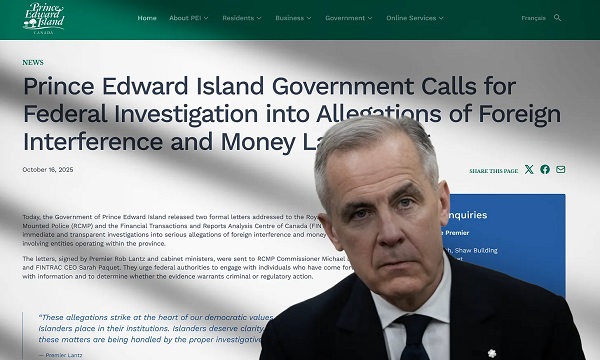
 espionage17 hours ago
espionage17 hours agoPEI to Ottawa: Investigate CCP Footprints—Now
-
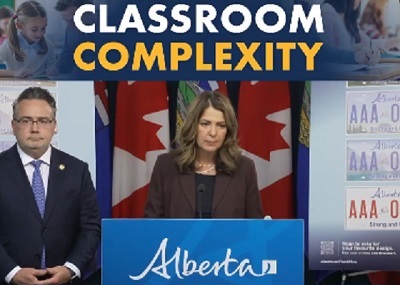
 Alberta2 days ago
Alberta2 days agoPremier Smith addresses the most important issue facing Alberta teachers: Classroom Complexity
-

 Alberta2 days ago
Alberta2 days agoAlberta taxpayers should know how much their municipal governments spend
-
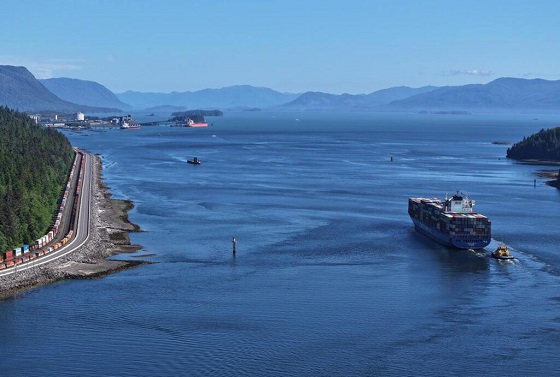
 Energy1 day ago
Energy1 day agoPrince Rupert as the Optimal Destination Port for an Alberta Crude Oil Pipeline –
-
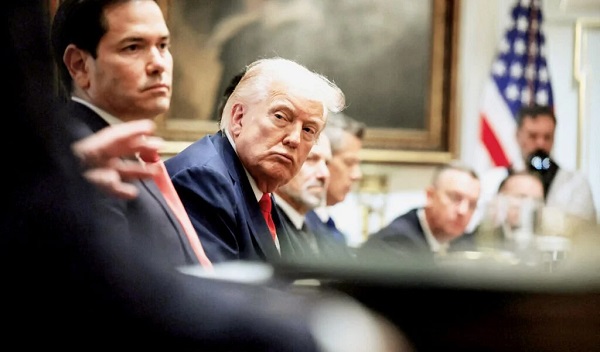
 Bruce Dowbiggin1 day ago
Bruce Dowbiggin1 day agoBrokeback President: We Can’t Quit You, Donald
-

 Business15 hours ago
Business15 hours agoFederal Budget 2025: A responsible media would ensure Canadians know about the dismal state of federal finance






